21 August 2024
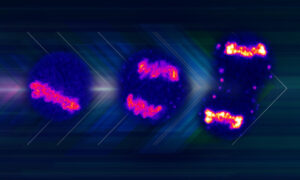
EMBL Heidelberg researchers discovered how a protein switches between repelling and gluing chromosomes during cell division. This helps the mother cell to divide the genome equally into two daughter cells and cluster chromosomes inside the daughter nuclei, ensuring a successful cell division.
SCIENCE & TECHNOLOGY
6 October 2020
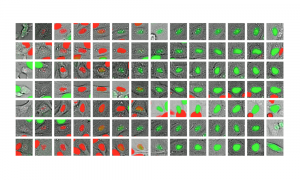
Members of an EMBL-led research group with collaborators in Estonia and Russia have built and trained a deep learning model to better understand how cells grow and divide.
SCIENCE & TECHNOLOGY
2020
sciencescience-technology
2 July 2019
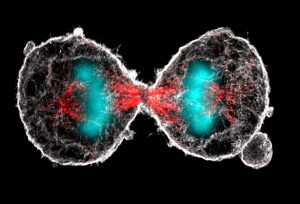
What looks like a pair of scary alien eyes is actually the final stage in the duplication of a cell. Cell duplication is preceded by a process called mitosis, in which the replicated chromosomes are separated into two new nuclei. Mitosis is the prerequisite for a cell to divide into two identical…
SCIENCE & TECHNOLOGY
2019
picture-of-the-weekscience-technology
4 June 2018
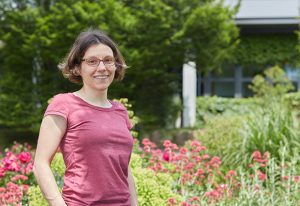
Which of our genes will be passed on to our children? Simone Köhler wants to find out
PEOPLE & PERSPECTIVES
2018
people-perspectivesscience
26 April 2018
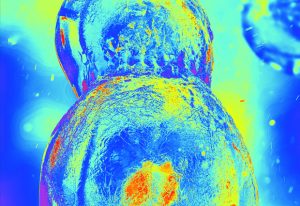
EMBL scientists uncover large solubility and thermal stability changes of proteins during the cell cycle
SCIENCE & TECHNOLOGY
2018
sciencescience-technology
27 September 2006
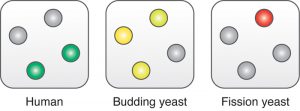
The life of a cell is all about growing and dividing at the right time. That is why the cell cycle is one of the most tightly regulated cellular processes. A control system with several layers adjusts when key components of the cell cycle machinery are produced, activated and degraded to make sure…
SCIENCE & TECHNOLOGY
2006
sciencescience-technology





